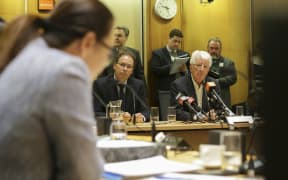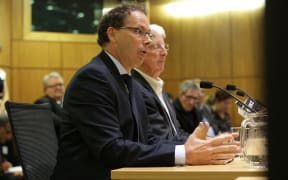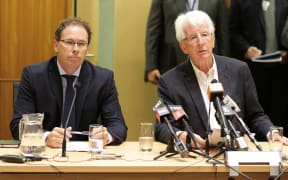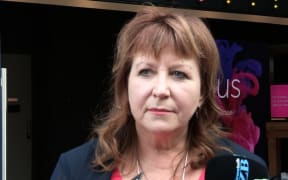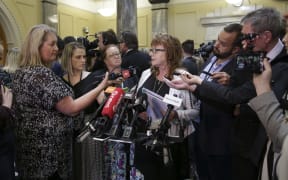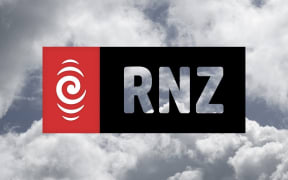By Brigitte Morten *
Opinion - The re-appearance of RNZ's heads at a select committee today didn't resolve many of the issues and managed to raise even more questions.
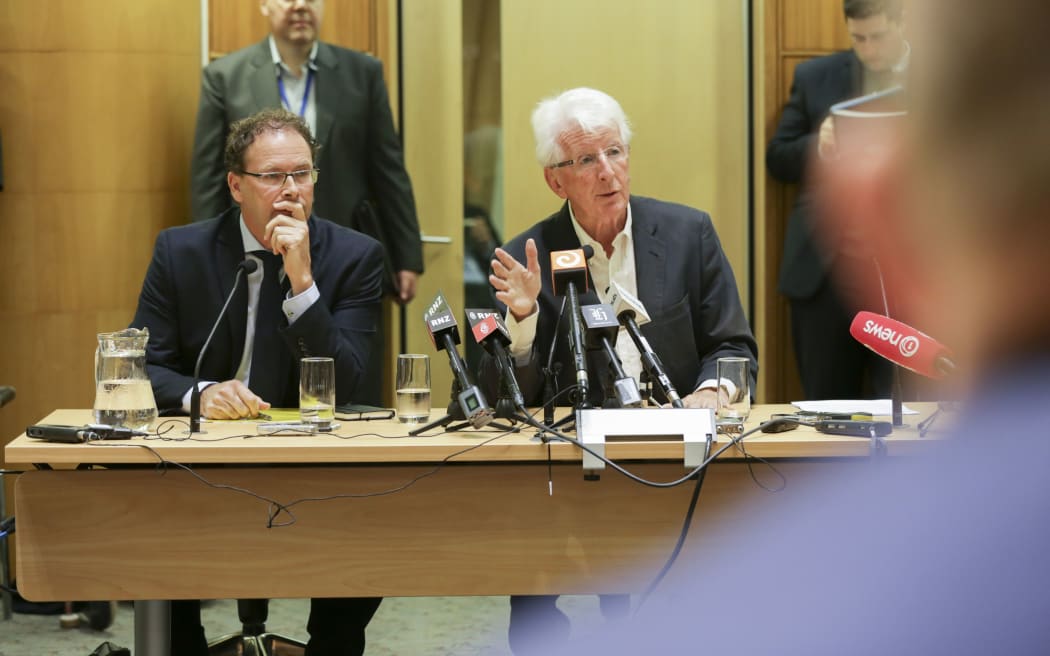
RNZ chief executive Paul Thompson (left) and chair Richard Griffin front up to the Select Committee. Photo: RNZ / Richard Tindiller
If the purpose of the RNZ appearance at the Communications Select Committee was to end the saga of the Curran Hirschfeld meeting, it failed.
As with any he-said-she-said tale - as this one has turned out to be - the detail is key. The select committee reappearance by RNZ chair Richard Griffin and chief executive Paul Thompson today did little to provide answers on the details in question.
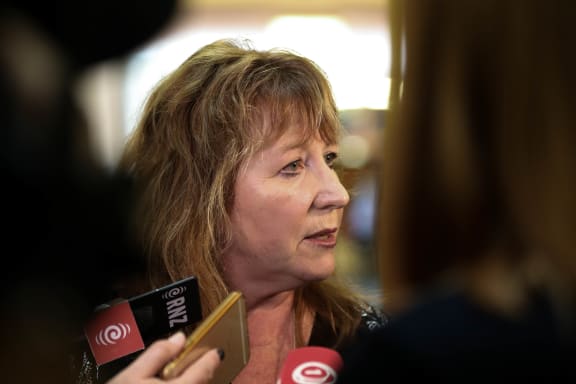
Minister for Broadcasting, Clare Curran answers questions from journalists Photo: VNP / Phil Smith
In fact, it has set off some new lines of inquiry - like RNZ's version of the timeline of events which demonstrates that the minister may still not have provided fulsome answers on the meeting.
At the heart of this issue is what was discussed at the December breakfast meeting between Minister of Communications Claire Curran and then-RNZ head of news, Carol Hirschfeld. The Minister has said that it was a high-level discussion on the state of the media.
When RNZ reappeared at the Select Committee hearing, they could only confirm what they had been told - not provide any further information.
The item of discussion that is of great interest is the current status of the Labour manifesto promise to provide funding for an RNZ television channel.
There has been speculation that RNZ has a different opinion to the minister on this initiative. It is not unusual for public servants to professionally differ to ministers on what the policy priorities are and how initiatives should be implemented.
This is even more possible with election promises, as apolitical public servants are forbidden from providing advice on said promises and so must come into play only after a policy is announced and a government elected.
Once a government is in power public servants work with the minister, through a series of structured meetings, to craft the policy into one that is achievable in implementation and fits within the overall government budget.
This is a highly professional process of advice provision, as it is the duty of a public servant to ensure that Ministers have full and frank advice about the consequences of their decisions. However, at the end of the day, it is the democratically elected Ministers that get the ultimate say on policy, not public servants.
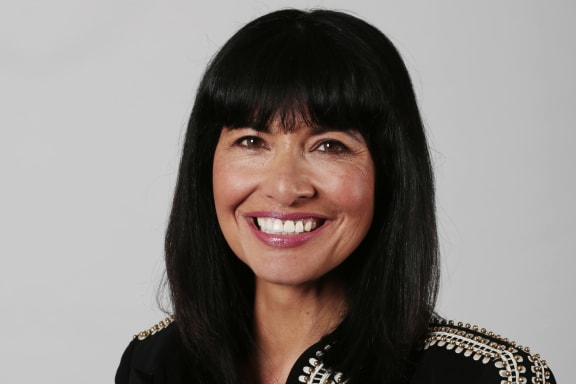
Carol Hirschfeld Photo: RNZ
Where the Curran-Hirschfeld meeting falls over is that the lack of detail on what was discussed in the meeting has led to speculation it was an attempt to circumvent that process. It is alleged that Hirschfeld backed the plans of the minister to create an RNZ television channel - despite reservations of her bosses (the chair and chief executive).
RNZ's chair dismissed this speculation in the committee hearing and said that all parties involved are in lockstep on where the policy currently is at.
The other matters raised in the select committee hearing - whether the Minister asked RNZ not to reappear, when and how Ministerial staffers informed RNZ that the meeting was rearranged, whether the chair should have told the opposition of Hirschfeld's resignation before it went public - will likely disappear into the news cycle.
However, these unanswered questions diminish trust between all the parties involved in the implementation of the initiative and therefore could impede its success.
On Budget Day, the detail of the evolved policy will be made public. Regardless of the assertions that the Minister and RNZ will make in backing the announced policy - it will be tarnished with the saga of this breakfast meeting.
An announcement of a new channel will be seen as a result of a conspiracy between the Minister and Hirschfeld. A hybrid model will be seen as a failure of the Minister to overrule public servants and deliver on a manifesto promise.
Similarly, Richard Griffin's term as chair is almost up. The Minister's decision on his reappointment or replacement will be perceived as a direct consequence of this incident - regardless of his record.
The Select Committee reappearance ended with a request from opposition MP Melissa Lee for copies of all communications between RNZ and the Minister.
This is a sign that the lack of detail so far will ensure this saga continues to drag on all the way to the Budget announcement - and possibly beyond.
* Brigitte Morten was a senior ministerial adviser for John Key's National-led government. Prior to that she was an adviser and campaign director for Australia's Liberal Party.
